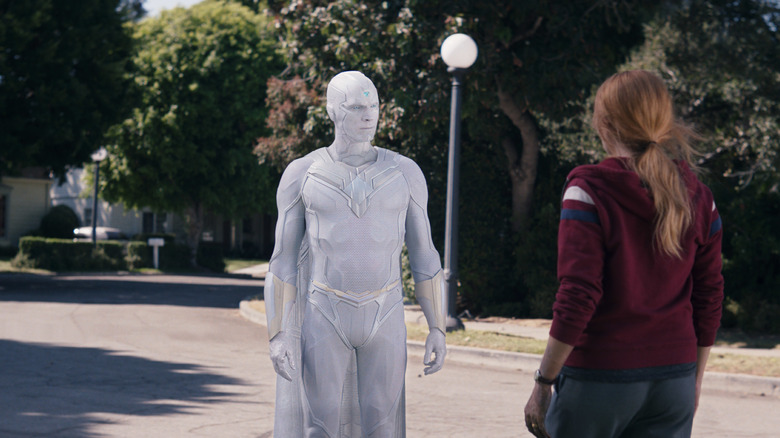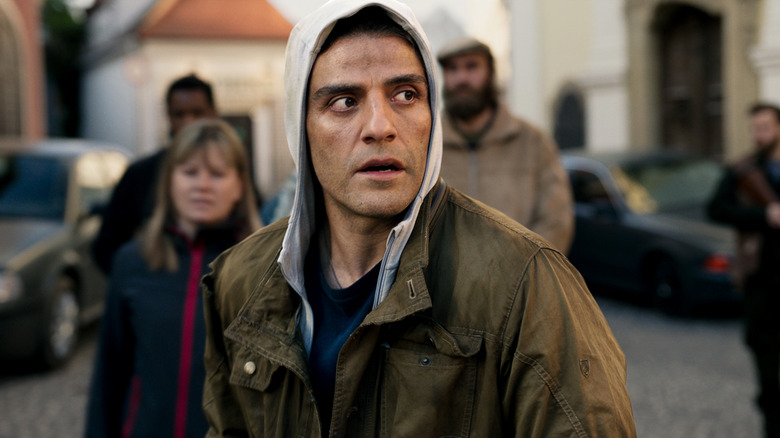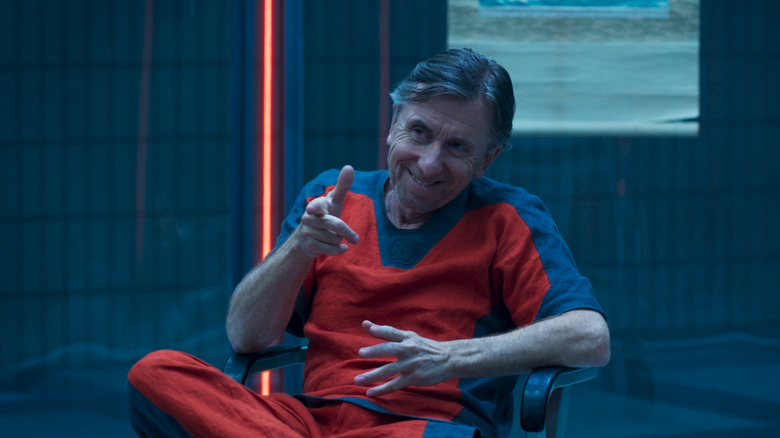White Vision's Rumored MCU Return Highlights Marvel's Biggest Problem Post-Endgame
Remember White Vision? You'd be forgiven if you didn't, as it's been more than three years since "WandaVision" introduced the character. The debut MCU Disney+ series explains how Vision (Paul Bettany) was rebuilt by the secretive organization S.W.O.R.D. in a new, silvery body. White Vision was last seen in the "WandaVision" finale, where he seems to take on the full persona of his predecessor.
According to X-based industry insider MyTimeToShineHello, a fairly reputable source for Marvel leaks and rumors, the character's return is still a ways off. "White Vision will return in 2026," MyTimeToShineHello tweeted on March 20, 2024. If that proves to be true, it will be a five-year gap at least between the character's first appearance and his second.
While this rumor is entirely unconfirmed, it doesn't seem ridiculous by any stretch of the imagination. Deadline reported the development of a White Vision spin-off series in 2022 called "Vision Quest," but there's been no word on it since. The odds of it even happening now don't seem great given Disney CEO Bob Iger's emphasis on cutting Disney+ costs. The only MCU project currently confirmed concretely for 2026 is "Avengers 5," which lost its previous subtitle of "The Kang Dynasty" after former star Jonathan Majors was found guilty of misdemeanor assault and expelled from the franchise. A team-up movie would make sense as a venue to bring back White Vision, but the MCU is in big trouble if it's going to keep leaving five-year gaps between each time we see its characters.
The MCU has spread itself too thin
Regardless of when exactly we see White Vision again, Marvel's problem remains: The MCU has spread itself too thin since the end of Phase 3. During the peak of the franchise, there were multiple projects coming out every year, but the narrative focus was still tight. Captain America, Thor, and Iron Man remained the three core pillars of the saga, and subsequent sub-series like "Black Panther" and "Spider-Man" were set up in crossover films to keep them connected to the core story.
These days, that tight focus is nowhere to be found. The flood of Disney+ MCU shows has brought a ton of new characters but very little in the way of a core plot. Introducing the multiverse as the next core narrative concept has allowed for some fun twists, but it's made things messier in the long term. The MCU has remained interconnected enough to be wildly confusing if you don't watch everything, but it's too diffuse to feel like a compelling whole.
Five years is way too long to go between appearances from core characters. When will Shang-Chi be pulled into the larger Marvel story? What about the Eternals, Moon Knight, and She-Hulk? Inevitably, a lot of these characters and threads will be left dangling, either because of poor performance or just because it's too many balls to keep in the air.
Fewer relationships, more cameos
The problem with introducing so many characters in so many corners of the Marvel universe is that it takes more and more screen time to tie them together. The MCU has largely chosen not to do that and instead keep a staggering number of storylines going at the same time. We still get crossovers, and some have real narrative consequences, but others, like Abomination appearing in "She-Hulk: Attorney at Law," are little more than cameos to reward dedicated fans.
There's too much material for casual viewers to keep up with, and Marvel Studios has done a poor job of communicating which installments are the most important. There's no guidebook anymore, which has left characters like White Vision on the fringes of the franchise, waiting just long enough for everybody to forget about them before finally getting another appearance. Is that Young Avengers project ever going to happen? Is U.S. Agent suddenly going to become central to the MCU plot?
In a way, the MCU has come to resemble the comic books it's based on more and more. There are tons of arcs happening simultaneously covering all kinds of characters and subgenres. The thing is, that model works in comics because every character is constantly getting new stories published. It can't hold up under the budgetary demands of modern Hollywood blockbusters or prestige streaming series, and the MCU is suffering because of it.


